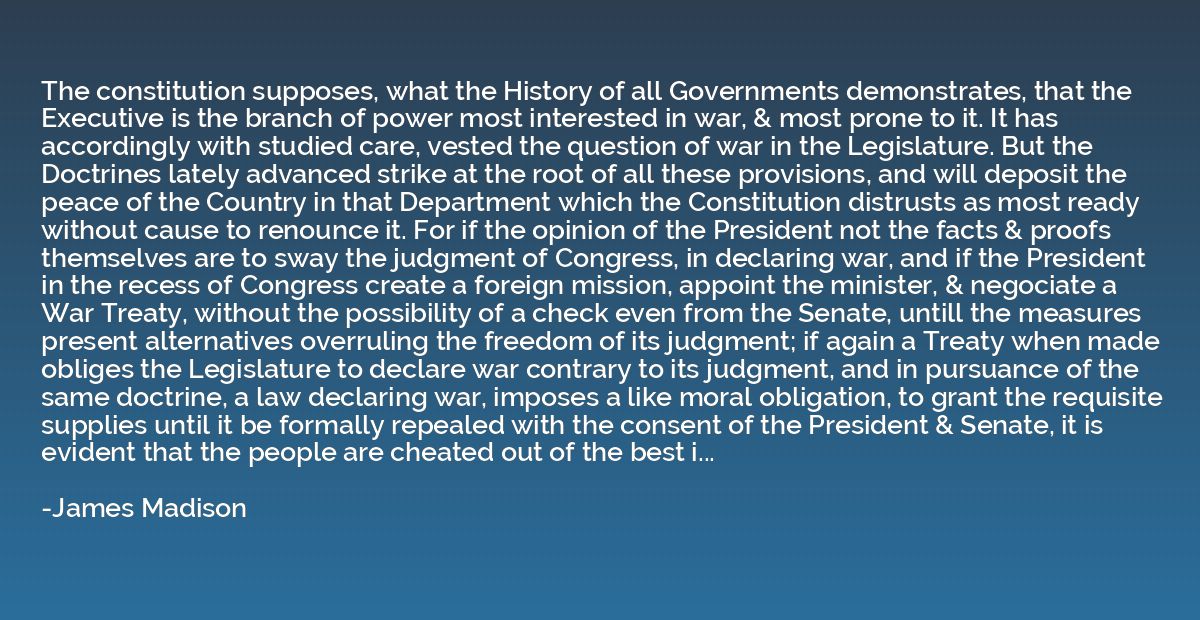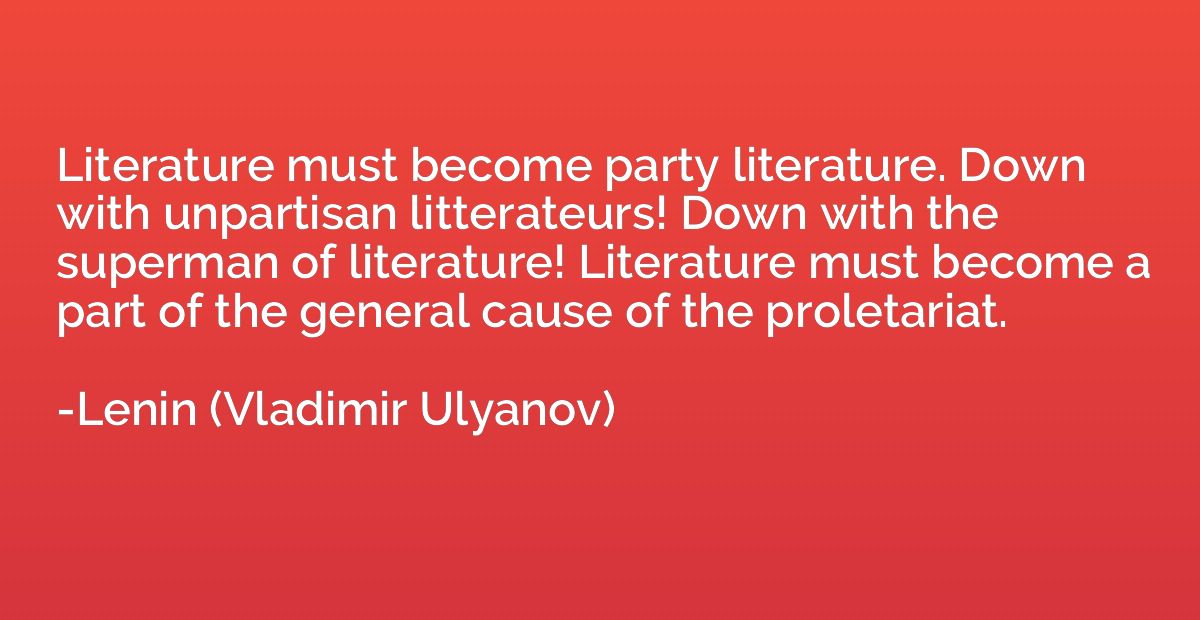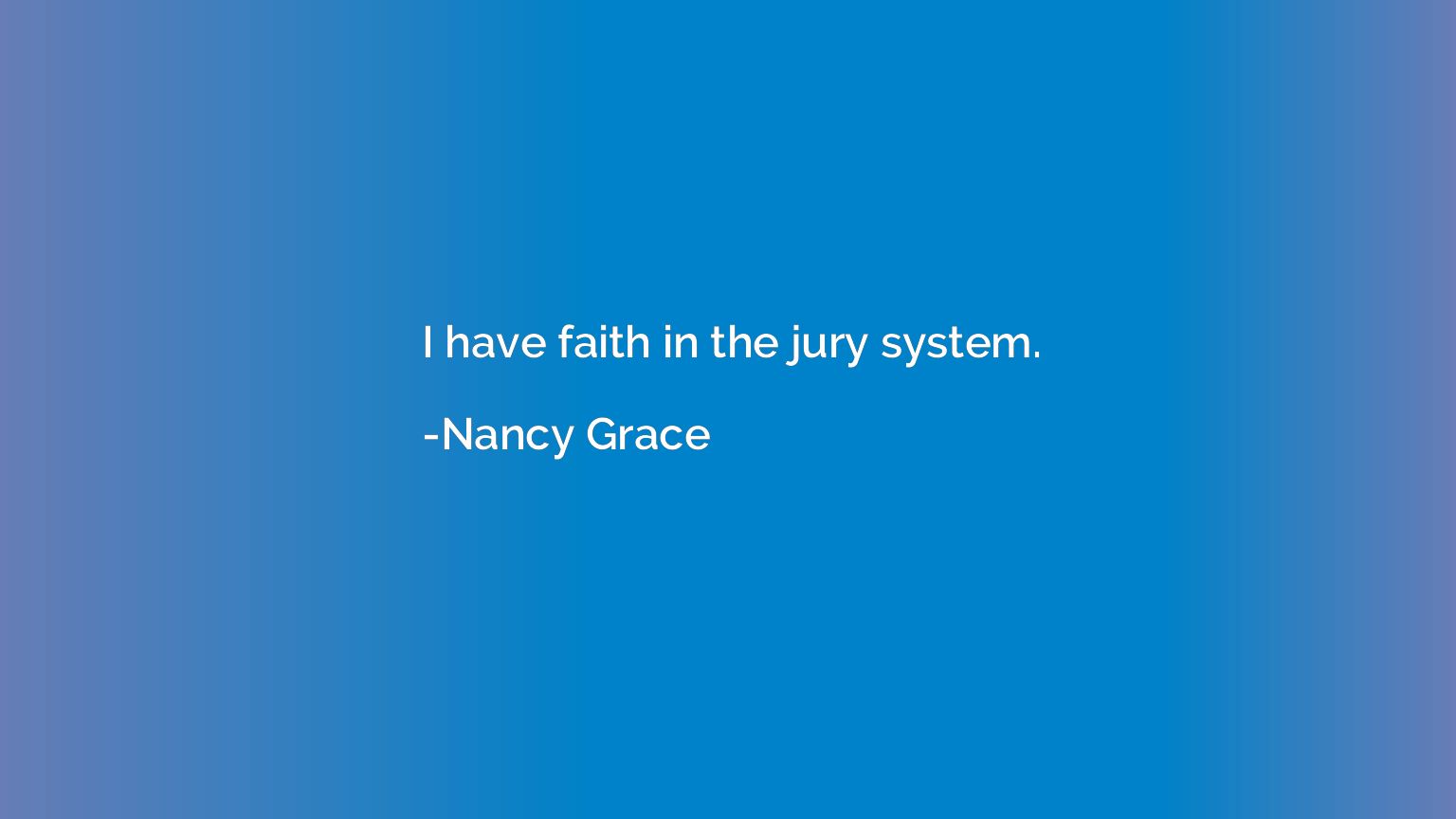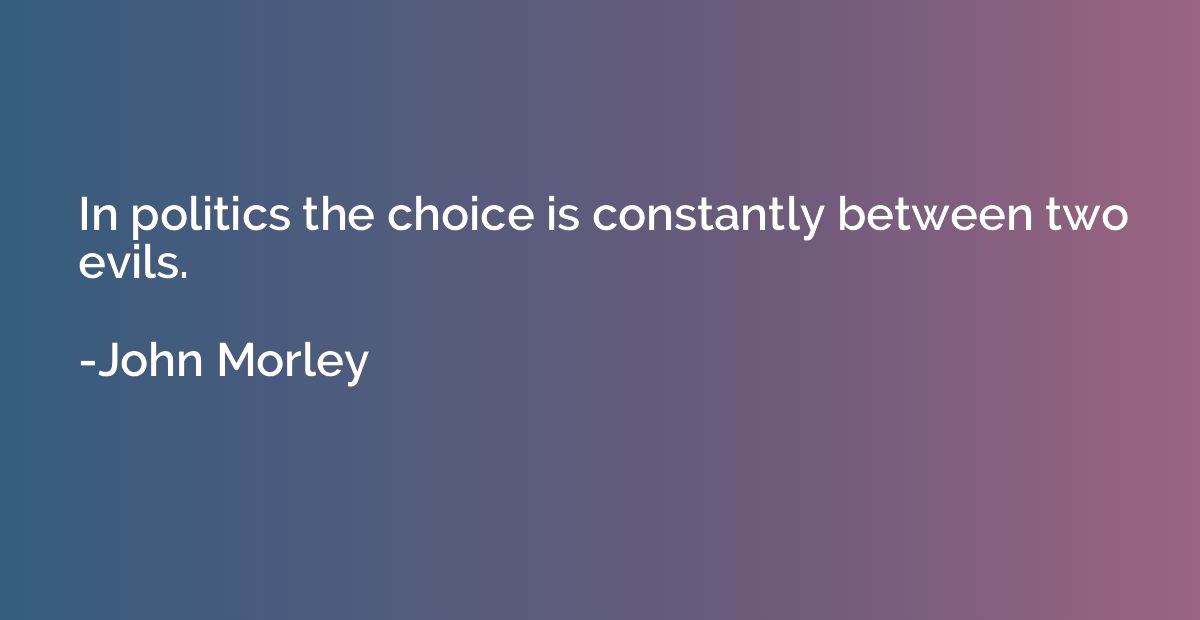Quote by James Madison
The constitution supposes, what the History of all Governments demonstrates, that the Executive is the branch of power most interested in war, & most prone to it. It has accordingly with studied care, vested the question of war in the Legislature. But the Doctrines lately advanced strike at the root of all these provisions, and will deposit the peace of the Country in that Department which the Constitution distrusts as most ready without cause to renounce it. For if the opinion of the President not the facts & proofs themselves are to sway the judgment of Congress, in declaring war, and if the President in the recess of Congress create a foreign mission, appoint the minister, & negociate a War Treaty, without the possibility of a check even from the Senate, untill the measures present alternatives overruling the freedom of its judgment; if again a Treaty when made obliges the Legislature to declare war contrary to its judgment, and in pursuance of the same doctrine, a law declaring war, imposes a like moral obligation, to grant the requisite supplies until it be formally repealed with the consent of the President & Senate, it is evident that the people are cheated out of the best ingredients in their Government, the safeguards of peace which is the greatest of their blessings.

Summary
This quote highlights the constitutional framework in the United States that places the power to declare war in the hands of the legislature. It expresses concern about recent doctrines that challenge this arrangement by giving the president significant authority in matters of war. The quote argues that this undermines the checks and balances system, potentially placing the country's peace in the very branch of government most inclined towards conflict. It emphasizes the importance of the people's welfare and their safeguarding of peace, suggesting that these doctrines deprive them of essential components of their government.














